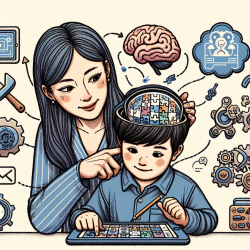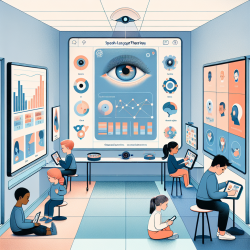Feeling lost is a common experience for many parents and educators involved in special education. Navigating the maze of Individualized Education Programs (IEPs) and ensuring that students with autism receive the speech therapy they need can be overwhelming. However, at TinyEYE, we believe that with the right tools and support, every child can thrive.
Special education advocacy groups play a crucial role in this journey. By understanding the tools available and how to use them effectively, you can help create an environment where every student has the opportunity to succeed. This blog aims to shed light on some of these tools and how they can be implemented to support children with special needs.
Understanding the Importance of IEPs
IEPs are more than just documents; they are tailored plans designed to meet the unique needs of each student. These plans outline specific goals, services, and accommodations necessary for the student's success. For children with autism, speech therapy is often a critical component of their IEP. Effective speech therapy can significantly improve communication skills, which are essential for academic and social success.
The Role of Online Therapy
Online therapy has emerged as a powerful tool in the realm of special education. It offers flexibility, accessibility, and a range of resources that can be tailored to each student's needs. At TinyEYE, we provide online speech therapy services that are specifically designed for children with autism. Our therapists are trained to deliver personalized sessions that focus on the individual goals outlined in the student's IEP.
Creating a Supportive Environment
Creating tools is not just about providing services; it's about building a supportive environment where students feel valued and understood. Here are some key strategies to consider:
- Collaboration: Work closely with teachers, therapists, and parents to ensure that everyone is on the same page. Regular communication and collaboration can help create a consistent and supportive environment for the student.
- Customization: Every child is unique, and their therapy should reflect that. Customize therapy sessions to align with the student's interests and strengths to keep them engaged and motivated.
- Technology: Utilize technology to enhance learning and therapy. Interactive tools and apps can make therapy sessions more engaging and effective.
- Advocacy: Advocate for the necessary resources and support. Ensure that the student's IEP is comprehensive and includes all the services they need to succeed.
Taking the Next Step
As advocates, it's essential to stay informed and proactive. Here are some steps you can take to ensure that students receive the best possible support:
- Stay Educated: Keep up-to-date with the latest research and best practices in special education and therapy.
- Seek Support: Don't hesitate to reach out for help. Whether it's connecting with other advocacy groups or seeking professional guidance, support is available.
- Monitor Progress: Regularly review the student's progress and adjust their IEP as needed. Ensure that the goals are being met and that the student is making meaningful progress.
Feeling lost is natural, but with the right tools and support, you can make a significant difference in the lives of students with special needs. At TinyEYE, we are committed to providing the resources and services necessary to help every child succeed. Let's work together to create a brighter future for all students.










